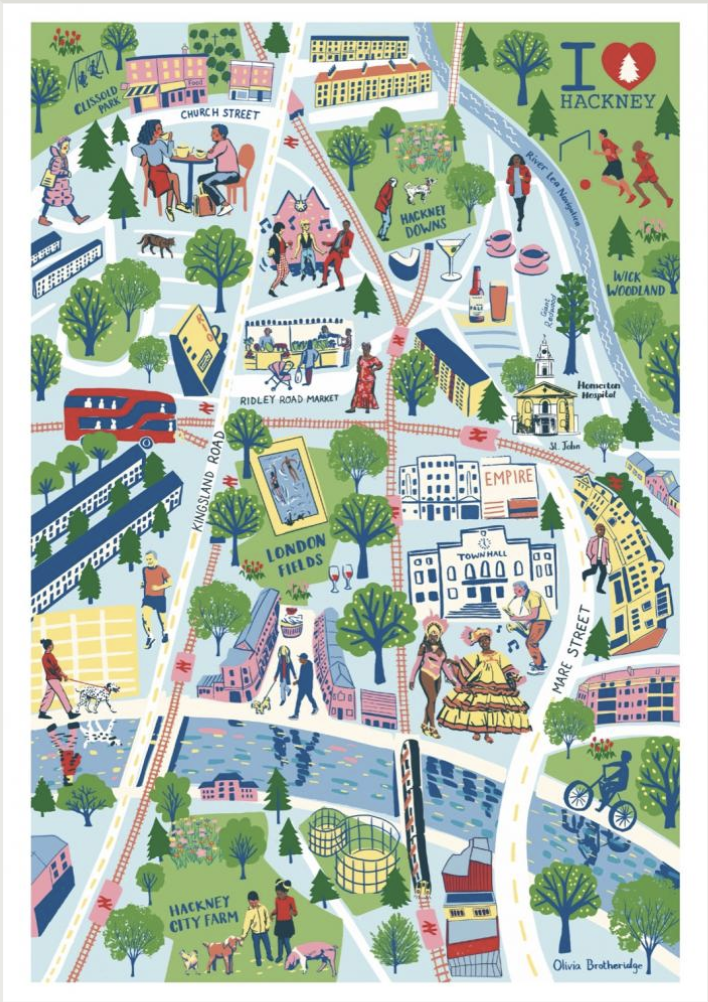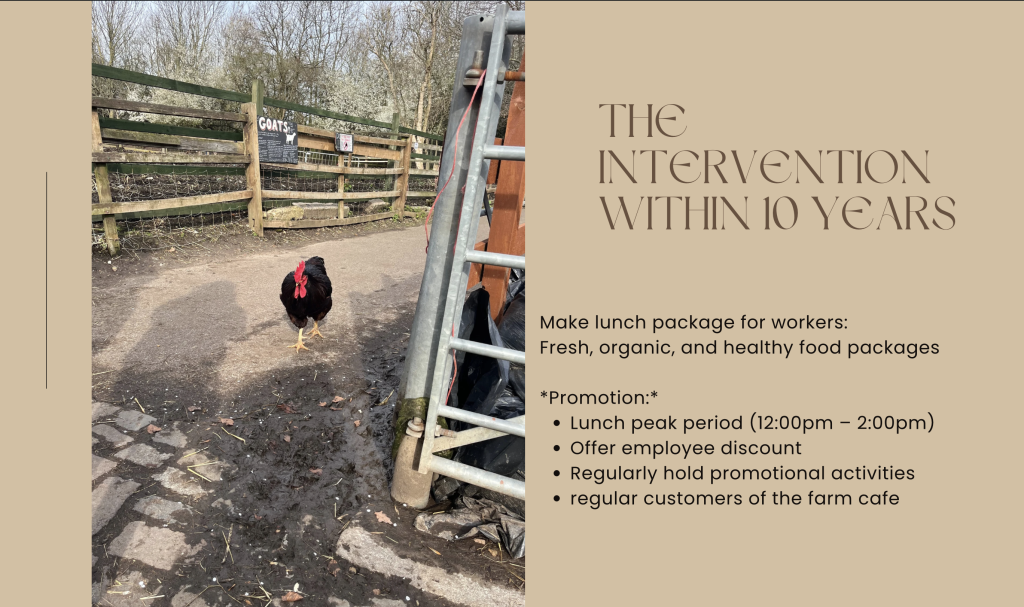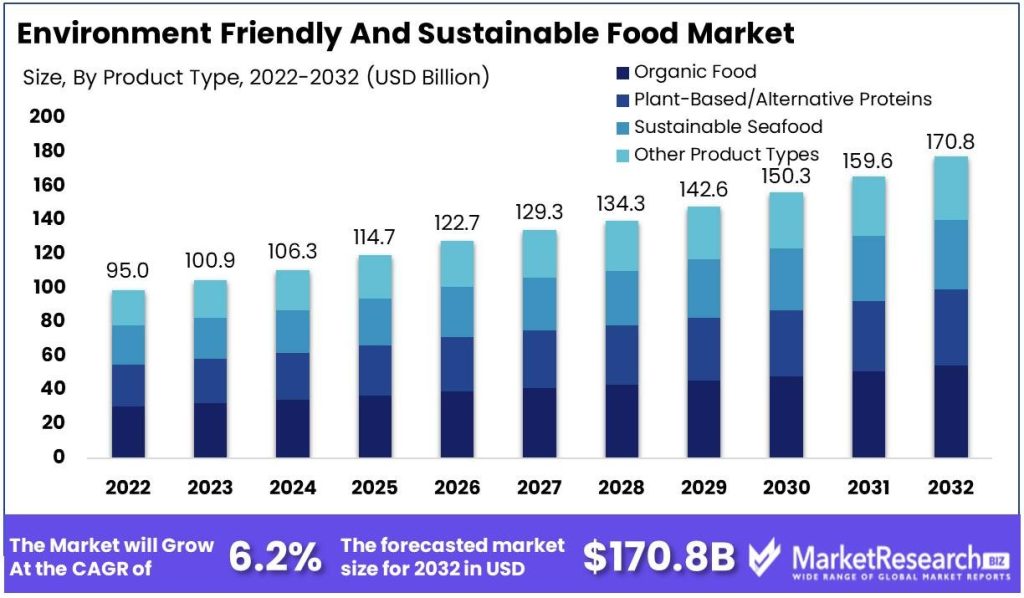
This insightful feedback prompted our group to revaluate our strategies for attracting visitors to city farms. In response, our group decided to target office workers, identifying them as our primary stakeholders. The rationale behind this choice stemmed from the observations during active research, noting city farms are always empty during lunch hours, particularly because only families and children who typically visit on weekdays.




Recognizing the untapped potential in the proximity of these farms to numerous office buildings, our group formulated a plan. We proposed attracting office workers to city farms through lunch package promotions, offering them not only a brief respite from the office environment but also a refreshing alternative workspace. Beyond the benefits for the workers, we anticipate positive outcomes for the city farms themselves. This approach has the potential to boost farm revenue.

The envisaged influx of office workers to city farms creates a ripple effect. The increased footfall could result in higher patronage of the on-site cafe, consequently contributing to enhanced consumption and providing additional opportunities for donations. This, in turn, alleviates the financial strain on city farms, addressing funding challenges and sustaining their operations.
I conducted additional research on the food options we could offer to office workers. After examining emerging trends for the next decade (Fromm, 2023), I proposed providing ethically produced food instead of sourcing random options. Given the significant role city farms play in raising awareness about animal rights, I believe this presents an excellent opportunity for individuals to engage with ethical food production practices.

In summary, the week’s work primarily revolved around the collaboration among our group members to prepare for the final presentation. Although initially anxious about the significant shift in our project strategy prompted by tutorial feedback, I came to appreciate its importance as the project progressed. As a result of this adaptation, our final product not only aligns with principles of animal welfare but also holds potential to foster community engagement and bolster the economic sustainability of urban farms. Most importantly, this shift helped me to understand the significance of critical thinking and adaptability in problem-solving.
Reference:
Fromm, J. (2023) Sustainable Food Trends Will Become Center Of The Plate With Modern Consumers, Forbes. Available at: https://www.forbes.com/sites/jefffromm/2020/11/10/sustainable-food-trends-will-become-center-of-the-plate-with-modern-consumers/ (Accessed: 12 March 2024).